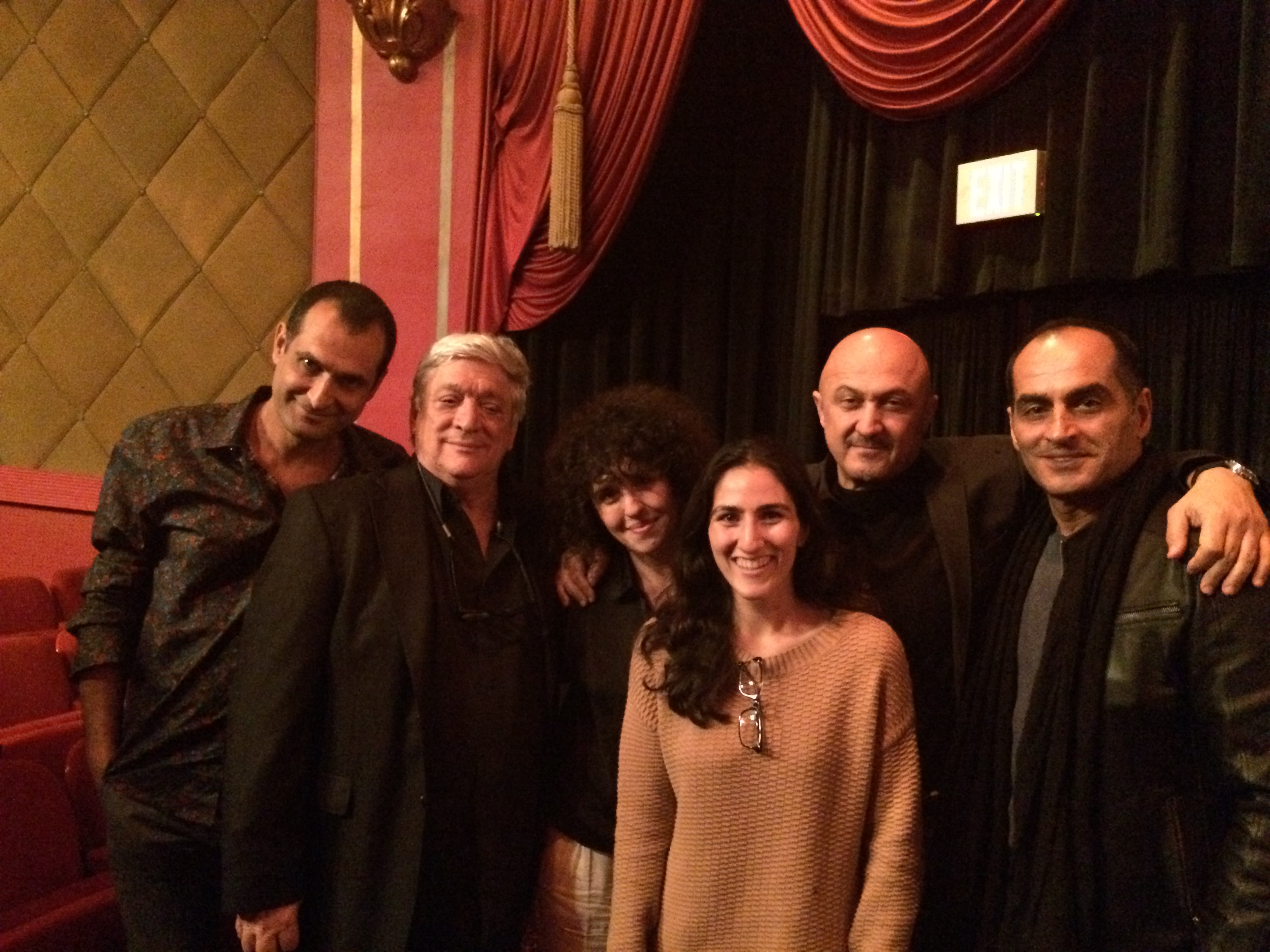On November 3, I had the chance to attend the 29th Israel Film Festival at the Ahrya Fine Arts Theatre in Beverly Hills to watch the film Baba Joon. This particular film screening was co-sponsored by the Younes and Soraya Nazarian Center for Israel Studies at UCLA, and it marked the first time the festival hosted a full house.
Although the event did not formally begin until 7:15 in the evening, people were already waiting in line to purchase tickets by 6:20. The audience was a mix of students, families, and young professionals. The majority of these attendees were of Persian heritage. Also in attendance was former mayor of Beverly Hills Jimmy Delshad, film cast members Navid Negahban, Viss Elliot Safavi, and David Diaan, as well as producer David Silber and Yuval Delshad, the director. Prior to starting the movie, the audience was welcomed by Dr. Yoram Cohen, the director of the Nazarian Center for Israel Studies. Dr. Cohen then introduced the community to the film’s cast and crew in attendance, and handed the microphone to the film director. Delshad kept his statement brief and to the point: “The film is yours now, take it how you would like.”
The film tells the story of Yitzhak (Negahban), an Iranian Jew whose family immigrates to Israel’s south to reestablish their turkey farming business. Yitzhak encourages his son, Moti (Asher Avrahami), to carry on the legacy of the farm, just as Yitzhak’s father, the eponymous “Baba Joon” (Rafael Faraj Eliasi), urged Yitzhak to take over the business. Viewers learn, however, that Moti wishes to digress from his father’s wishes and spend his life doing something different. While Moti confides in his mother, Sarah (Safavi), and receives her support, a gap develops between him and his father. Matters grow more complicated when Yitzhak’s brother, Darius (Diaan), visits from America and convinces Yitzhak to accept and appreciate Moti’s unique talents. Meanwhile, Baba Joon pressures Yitzhak to discipline Moti until he concedes. At the conclusion of the film, which also marks the film’s climax, Baba Joon orders Yitzhak to whip Moti for disobeying him. As Yitzhak walks toward Moti with a belt in hand, he looks into his son’s eyes and says, “Forgive me, Baba Joon.” Then, the screen goes black, marking the end.
During the question and answer session that followed the screening, numerous audience members praised director Delshad for addressing the subject of breaking traditional familial values, and for contributing an understanding perspective. It appeared as though members of the the Jewish community in the audience could relate to the situations displayed in the film and empathize with the characters. They understood that Baba Joon came from a household where it was almost expected to carry on the legacy of those before him. Yitzhak was a relatively young immigrant who tried to strike a balance between the traditions of his mother country and the innovations of Israel. Moti was seen as the byproduct of a new era and, thus, symbolized modernity. He was incompatible with the past. Lastly, Sarah was the female voice of wisdom, the maternal figure that calmed the room in times of conflict.
While these explanations were brought to light at the screening, there was a question on my mind that I could not leave unanswered. At the end of the film, when Yitzhak pleaded the final words of the movie, “Forgive me, Baba Joon,” was he addressing Moti, or his own father? In Persian, Baba joon is a term of endearment that can be addressed to a father or a loved one, such as a child. In the case of this film, Yitzhak could have been asking his son to forgive him for being so unaccepting all this time. Simultaneously, Yitzhak could also be asking his own father to forgive him for not mustering the courage to discipline Moti according to tradition.
For this question, I received responses from both Delshad and Navid Negahban, who played Yitzhak. Both of them left the answer up to my interpretation. These responses reinforced Delshad’s initial statement at the start of the event. Baba Joon was now an elastic entity, interpretable in infinitely many ways, and belonged to the audience. Perhaps it is the film’s unique quality of interpretive flexibility that prompted the State of Israel to nominate Baba Joon for the Best Foreign Language Film at the 88th Academy Awards. Having attended the screening of the film, I can attest to the claim that the nomination evinces the Jewish state’s identification with the film, and its belief that others, worldwide, can also relate.

